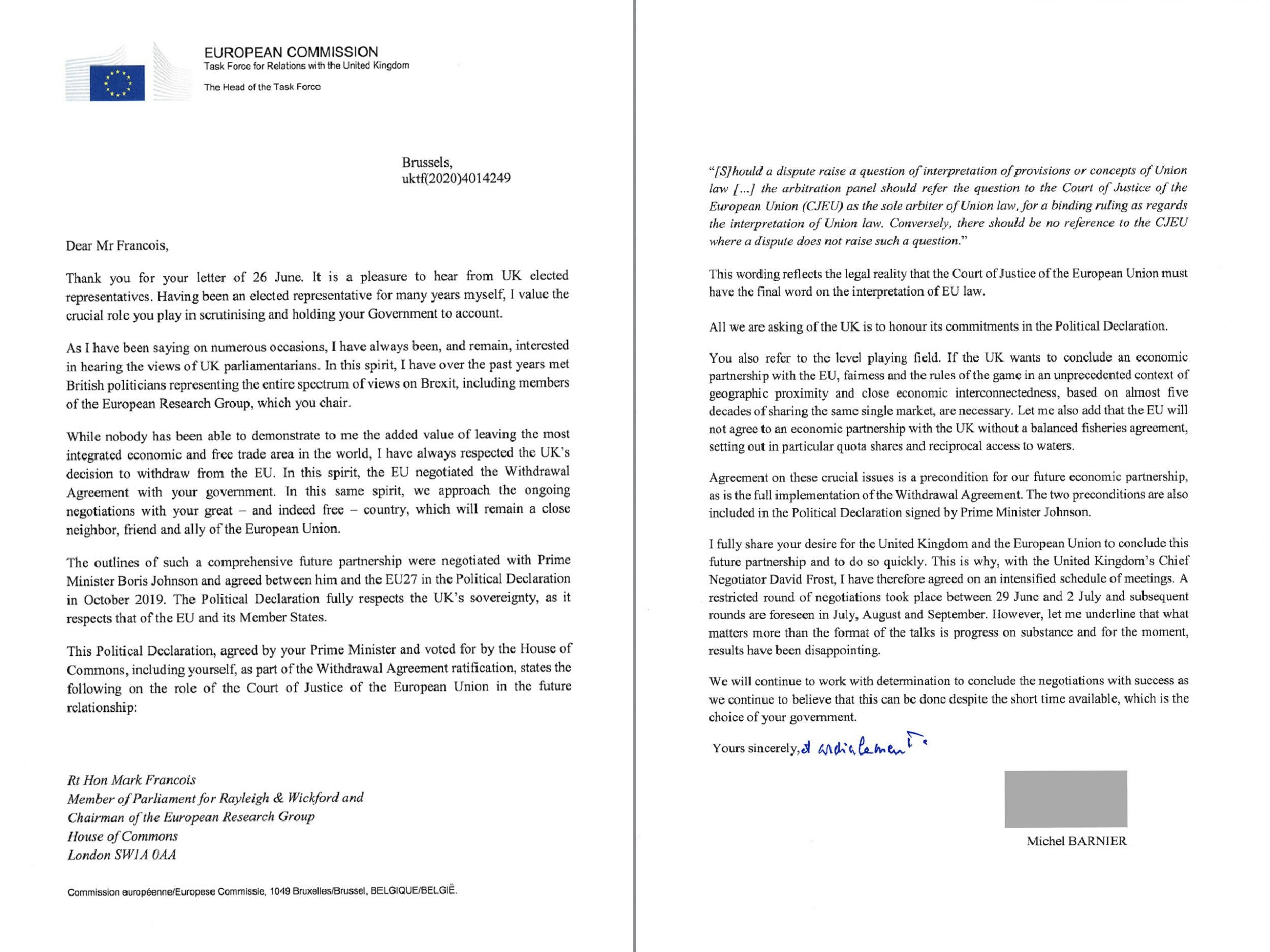Brexit: Michel Barnier mocks Mark Francois’ moan about EU trade ‘demands’, pointing out he voted for them
They were ‘voted for by the House of Commons, including yourself, as part of the withdrawal agreement ratification’, negotiator says
Your support helps us to tell the story
From reproductive rights to climate change to Big Tech, The Independent is on the ground when the story is developing. Whether it's investigating the financials of Elon Musk's pro-Trump PAC or producing our latest documentary, 'The A Word', which shines a light on the American women fighting for reproductive rights, we know how important it is to parse out the facts from the messaging.
At such a critical moment in US history, we need reporters on the ground. Your donation allows us to keep sending journalists to speak to both sides of the story.
The Independent is trusted by Americans across the entire political spectrum. And unlike many other quality news outlets, we choose not to lock Americans out of our reporting and analysis with paywalls. We believe quality journalism should be available to everyone, paid for by those who can afford it.
Your support makes all the difference.Michel Barnier has mocked a Tory MP’s protests about the EU’s aims for a post-Brexit trade deal – pointing out he voted for the measures himself.
Mark Francois, head of the hardline European Research Group, wrote to the EU’s chief negotiator last month, insisting he must drop his “unreasonable demands”.
In a scathing response, Mr Barnier sets out how those “demands” – on adherence to EU rules and the role of the European Court of Justice – were both “agreed” by Boris Johnson, in the Brexit deal.
It was then “voted for by the House of Commons, including yourself, as part of the withdrawal agreement ratification,” he points out.
In a letter dripping in sarcasm, Mr Barnier adds: “All we are asking of the UK is to honour its commitments in the political declaration.”
An agreement is still possible, he argues – “despite the short time available, which is the choice of your government”.
The last point is a reference to the prime minister’s decision to reject an extension to the transition period, threatening both sides with a no-deal Brexit on 31 December.
The negotiations remain deadlocked over the flashpoints listed by Mr Barnier, plus fishing rights, the UK insisting that to concede would mean giving up its sovereignty.
However, the EU can point to the terms of the political declaration, signed in haste by Mr Johnson last autumn to strike an exit deal and take the UK out of the bloc on 31 January.
It agrees that, on any dispute over EU law, “the arbitration panel should refer the question to the Court of Justice of the European Union (CJEU) as the sole arbiter of Union law, for a binding ruling”.

And, on so-called ‘level playing field’ issues, both sides pledged to “uphold the common high standards applicable in the Union and the United Kingdom at the end of the transition period in the areas of state aid, competition, social and employment standards, environment, climate change, and relevant tax matters”.
Despite Mr Johnson’s signature on the document – and ratification by the Commons – the UK has insisted it will not sign a trade deal that prevents it breaking free of EU rules, or leaves it under the remit of the CJEU.
The clash came as the prime minister sparked accusations of putting Brexit before health by rejecting an invitation to join an EU scheme to procure a coronavirus vaccine.
Meanwhile, the British Retail Consortium warned the cost of household staples – ranging from meat and cheese to school uniforms and drinking glasses – will soar under a no-deal Brexit.
The public should prepare for price hikes on “ordinary household goods that every consumer has to buy and replenish”, it said.

Join our commenting forum
Join thought-provoking conversations, follow other Independent readers and see their replies
Comments